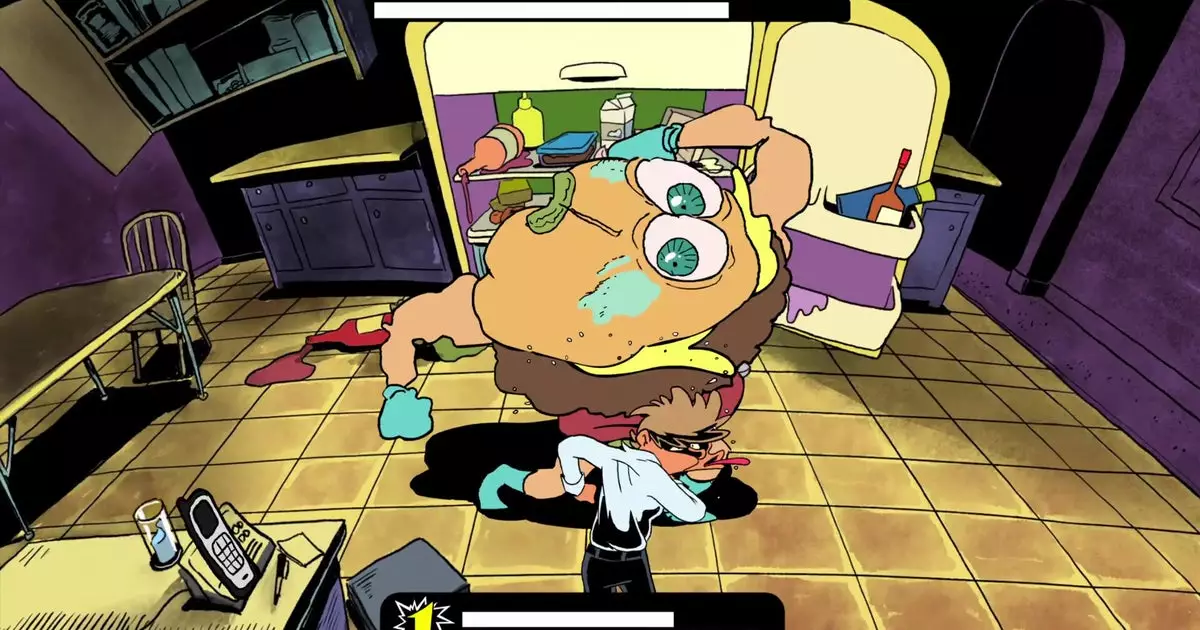Anyone who’s ever wrestled with the daily grind of household chores can relate to a common yet comical struggle: an unexpected battle with the very tools and items meant to aid in the culinary experience. Take, for example, the archetypal kitchen spatula that often seems to have a mind of its own, slipping from its designated resting place to wreak havoc across the kitchen floor. That spatula is not merely a utensil; it embodies both frustration and hilarity, much like the unyielding leftover dishes that linger long after meals have been devoured.
On a particularly overwhelming day, the kitchen can transform into a battleground. What was once a peaceful domain for food preparation becomes a riot of dirty dishes and rogue utensils that not only resist being cleaned but seem to conspire against you. Each slip and tumble may evoke curiosity about how often our domestic lives can mirror scenes from action-packed video games, turning mundane tasks into epic quests.
The Allure of Leftover Combat
Now, consider merging the whimsical with the absurd. Imagine a world where leftovers come to life, not as benevolent companions in the fridge but as active participants in an exciting combat scenario. In this fantastical setting, your uneaten meals transform into formidable foes that demand to be fought in an old-school arcade style. What’s more exhilarating than dodging, blocking, and punching your way through a universe where a disgruntled hamburger and a menacing artichoke stand between you and culinary peace?
This unique approach brings to life the concept of “Leftovers KO!”, an inventive blend of humor and nostalgia that beckons players to engage with their culinary frustrations. The interactive system, inspired by classic gaming, enhances this highly relatable struggle, cleverly inviting participants to master increasingly difficult opponents—the remnants of meals past—while evolving their battle skills.
Fridge Wars and Sentimental Relationships
While the game might encapsulate a humorous perspective on tackling leftovers, one has to pause and reflect on our complex relationship with food. For many, leftover items in the fridge aren’t just food; they represent memories, efforts in culinary innovation, and sometimes, the aspirations of home-cooked perfection that didn’t quite hit the mark. Such a connection often leads to an exaggerated reverence for Tupperware—each container becoming a keepsake of flavors and experiences.
As one navigates through the vibrant art and challenges of this quirky gameplay, they may inadvertently tap into their own kitchen tales—how the seemingly trivial task of discarding a wilted celery stick can evoke a flood of memories tied to family dinners or late-night snacks. The game’s charm lies not just in its mechanics but also in its ability to amplify these everyday narratives while allowing players to cleanse their kitchens with the flair of action-packed combat.
In this fantastic quest against leftover foes, players are given an opportunity to explore their culinary histories in a lighthearted environment. Yes, it’s an exaggerated take on the often mundane task of cleaning up after meals, yet it also holds a mirror to our emotions surrounding food, nostalgia, and perhaps the internal conflicts we wrangle with when saying goodbye to the remnants of our culinary adventures.

